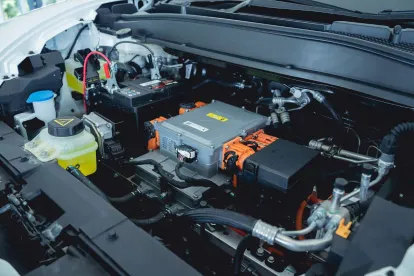On March 31, 2023, the U.S. Department of Treasury and Internal Revenue Service (IRS) released proposed guidance clarifying how manufacturers may meet the critical minerals and battery sourcing requirements for the clean vehicle tax credit under the 2022 Inflation Reduction Act (IRA). The IRA substantially modified the tax credit incentive structure of the Internal Revenue Code as it relates to electric vehicles (EV). As the demand for lithium and critical minerals is higher than ever, taxpayers and EV manufacturers alike have been eagerly anticipating this guidance.
What is a “Free Trade Agreement” under the IRA
To qualify for the full IRA tax credit, the EV battery must have the requisite percentage of the value of the applicable critical minerals and those minerals must be extracted or processed in the United States or in a country with which the United States is engaged in a “free trade agreement.” However, the IRA does not define the term “free trade agreement”. The March 31st guidance (and its subsequent proposed rule) offer a four-step process for determining whether the United States has a qualifying free trade agreement (FTA) with another nation. To qualify there must be an agreement between the United States and another country, as to the critical minerals contained in electric vehicle batteries or more generally, and in the context of the overall commercial and economic relationship between that country and the United States that:
-
Reduces or eliminates trade barriers on a preferential basis,
-
Commits the parties to refrain from imposing new trade barriers,
-
Establishes high-standard disciplines in key areas affecting trade (such as core labor and environmental protections), and/or
-
Reduces or eliminates restrictions on exports or commits the parties to refrain from imposing such restrictions on exports.
Qualifying Countries
Japan
In accordance with these criteria, the United States has been negotiating critical mineral agreements with certain countries to qualify their imports for IRA purposes. On March 28, 2023, the United States added Japan to the list of qualifying countries in an unusual trade agreement focused solely on the free trade of critical minerals. That Critical Minerals Agreement builds on the 2019 U.S.-Japan Trade Agreement but is not a comprehensive free trade agreement. Yet the Critical Minerals Agreement meets the criteria published in the March 31st guidance. The Critical Minerals Agreement reaffirms the commitment of the United States and Japan to strengthen and diversify critical minerals supply chains and promote the adoption of electric vehicle battery technologies. It also memorializes new commitments to promise fair competition and market-oriented conditions for trade in critical minerals, advance robust labor and environmental standards, and cooperate in efforts to ensure secure, transparent, sustainable, and equitable critical minerals supply chains.
European Union
Japan may soon not be the only country with a limited free trade agreement focusing on critical minerals. As recently as the week of June 15, 2023, the European Commission approved negotiating objectives to advance talks with the United States to secure the European Union’s eligibility for IRA incentives related to critical minerals. The objectives are trade facilitation, sustainability, labor, and international aspects.
United Kingdom
On June 8, 2023, the United States and United Kingdom announced the Atlantic Declaration, described as a Twenty-First Century U.S.-UK Economic Partnership to ensure that their alliance is “reinforced and reimagined” to align with current challenges. The countries announced their intent to begin negotiations focused on a critical minerals agreement immediately. Similar to the aforementioned critical minerals agreements, the possible UK agreement would have the purpose of ensuring supply chain diversification in addition to robust labor and environmental standards to support the creation of well-paying jobs.
Current FTA Partners
Other countries that are already parties to free trade agreements with the United States that appear to satisfy the published criteria include Australia, Bahrain, Canada, Chile, Colombia, Costa Rica, Dominican Republic, El Salvador, Guatemala, Honduras, Israel, Jordan, Mexico, Morocco, Nicaragua, Oman, Panama, Peru, Singapore and South Korea. Most recently, South Korea met with the United States and Mongolia to have a critical minerals dialogue on June 27, 2023 to achieve more secure and resilient supply chains. So Mongolia could end up joining the list in due course, and we should expect others to follow.
Forward-looking Note
While we expect to see more critical mineral free trade agreements of this kind, the Administration’s approach has not been universally endorsed. It has attracted some bipartisan criticism on Capitol Hill. Ways and Means trade subcommittee Chair Adrian Smith (R-Neb.) has gone so far as to say that the approach is “ignoring the law,” and Rep. Suzan DelBene (D-Wash.) recently described the new Treasury/IRS guidance as “bypass[ing] the intent of Congress…by redefining our understanding of a free trade agreement.” Chairman of the Senate Finance Committee Sen. Ron Wyden (D., Ore.) when speaking on the subject emphasized the “constitutional imperative” to involve Congress in trade policy. We may not have heard the last word yet on the use of these critical minerals free trade agreements, but the Administration has clearly judged that it has the necessary legal authority, and that the success of the EV initiative and relations with our closest allies require it to pursue this course.
Megan Bilbao contributed to this article. She is a Summer Associate at the Orange County office of Sheppard Mullin.




 />i
/>i

